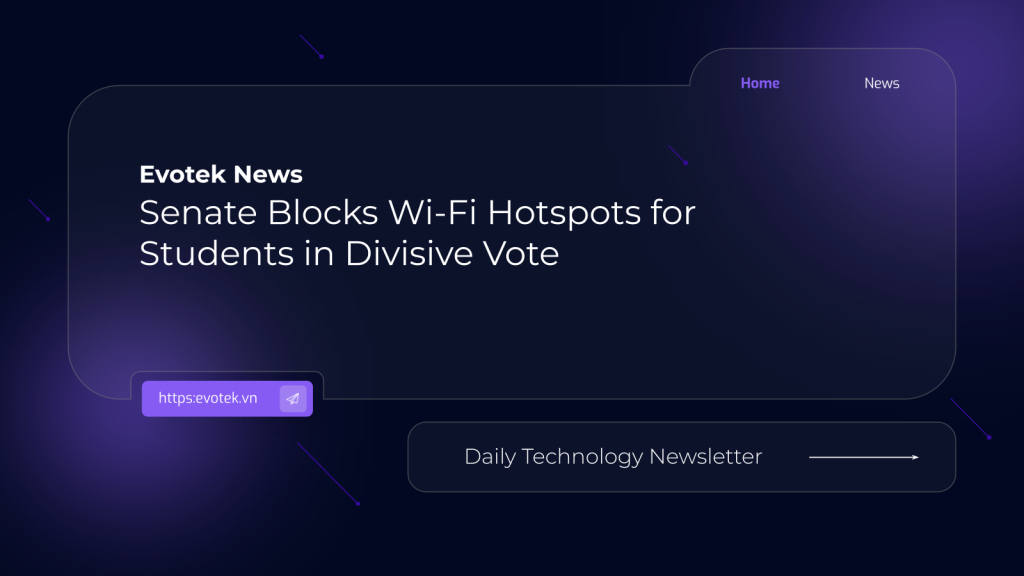In a move sparking heated debate, the Senate has voted to overturn an FCC program designed to provide Wi-Fi hotspots to students lacking reliable broadband access. The resolution, passed along party lines, effectively nullifies a key initiative aimed at bridging the digital divide.
GOP Opposition Cites Parental Concerns
Republicans argue the program oversteps the FCC’s authority and raises concerns about parental control over online content. Senator Ted Cruz (R-Texas), a vocal critic, claimed the program could expose children to “inappropriate content” and undermine parental oversight. He suggested the initiative shifts control from parents to schools, potentially leading to censorship of conservative viewpoints.
Democrats Decry “Cruel” Decision
Democrats have strongly condemned the vote, labeling it a setback for students and families reliant on the program for educational access. Senator Edward Markey (D-Mass.) described the decision as “cruel and shortsighted,” warning it would exacerbate the digital divide and deprive children of essential learning tools.
Senator Richard Blumenthal (D-Conn.) emphasized the importance of expanding, not restricting, internet access for students. He argued the resolution would deny millions of students, educators, and families access to a crucial resource, hindering their future opportunities.
The Fate of the Hotspot Program
The now-nullified FCC rule, championed by former Chairwoman Jessica Rosenworcel, expanded the E-Rate program, allowing schools and libraries to use funding to lend Wi-Fi hotspots for off-campus use. This initiative, titled “Addressing the Homework Gap through the E-Rate Program,” was slated to begin in July 2025.
The future of the hotspot program now hinges on the House of Representatives, where a similar resolution is under consideration. If the House passes the resolution and President Trump signs it, the program will be permanently eliminated, preventing the FCC from enacting similar rules in the future.
FCC’s Stance and Congressional Authority
Current FCC Chairman Brendan Carr opposed the lending program, arguing that Congress alone should decide whether to revive it. He pointed to the expiration of the Emergency Connectivity Fund (ECF), a previous program that provided Wi-Fi hotspots, as evidence that Congress has not authorized the FCC to continue such initiatives.
Representative Russ Fulcher (R-Idaho), who introduced the House resolution, echoed this sentiment, stating that the FCC is overstepping its authority and disregarding congressional intent. He accused the Biden administration of unlawfully expanding the E-Rate program beyond its intended boundaries.
E-Rate Funding and the Digital Divide
The E-Rate program, funded through fees on phone companies, provides schools and libraries with affordable internet access. While overall E-Rate funding is capped at $4.94 billion per year, actual spending in 2023 was $2.48 billion.
The Senate vote highlights the ongoing debate over how to best address the digital divide and ensure all students have equal access to educational resources. The resolution’s fate in the House will ultimately determine whether the Wi-Fi hotspot lending program will continue to provide vital internet access to students in need.

 日本語
日本語 한국어
한국어 Tiếng Việt
Tiếng Việt 简体中文
简体中文